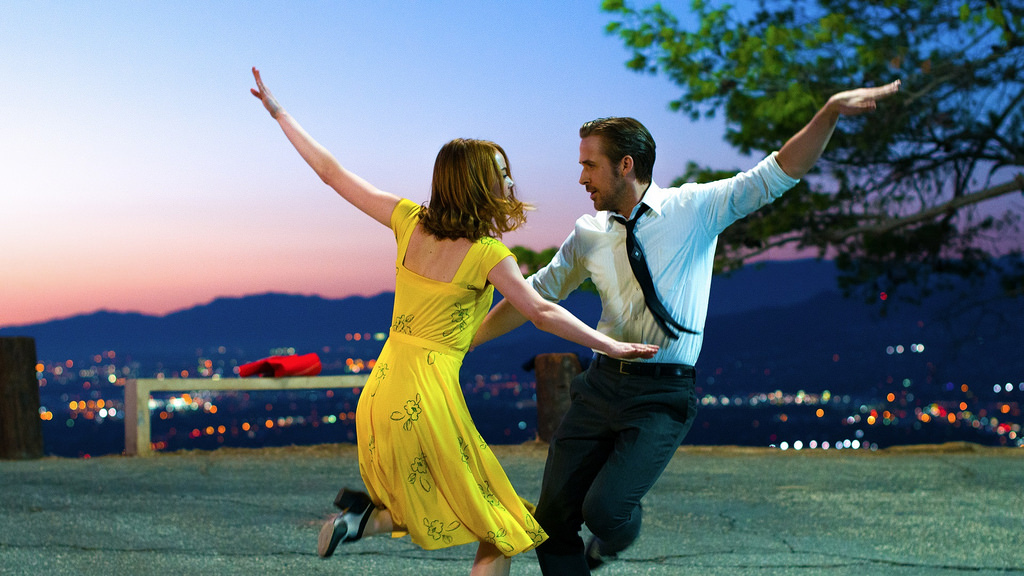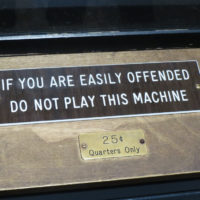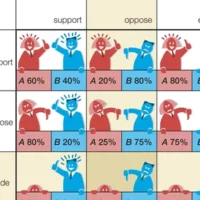

Moonlighting in La La Land
Admittedly, I am often late when it comes to the Oscar party. By that, I am not suggesting that I even watch the Oscars themselves. I’m sorry Hollywood, but I have no use for a self-indulgent love fest that strokes the ego of a bunch of narcissists consumed by their own self-worth. I do, however, tend to enjoy watching the films that are nominated for the Best Picture trophy. I appreciate thoughtful, groundbreaking cinematic achievement and though there are certainly some notable exceptions and unconscionable exclusions, more often than not, these pictures are some of the best movies I will see during the year. I just sometimes wish I could see them all before the Oscar presentations so that I could settle on my own opinion and formulate a rooting interest by the time the winners are announced. Given this year’s preposterous debacle in which Warren Beatty falsely announced that La La Land had won Best Picture only to be corrected in favor of the real winner, Moonlight, I would have been particularly pleased to have seen both films before Oscar night- not merely because it would have made this comedy of errors even more hilarious, but more poignantly because it would have illustrated the stark contrast between the vastly different visions of American society these two films represent.
You see, depending on where you live and which side of the socioeconomic divide you happen to fall into, each of these films is representative of America as you know it. The economic schism that has come to define our personal experience has become so pronounced that in reality we are living in two different Americas. Often broken down along racial lines as well, this fundamental difference of opportunity and circumstance forms the filter through which we come to perceive and understand the community in which we live. One section of America lives in a world of hope and prosperity where dreams are chased and achieved through perseverance and vision. The other is relegated to a bleak world of fated consequence, a doomed life that is squelched before it can even begin.
On the one hand, we have La La Land, a portrayal of the artistic American dream. Our young heroine, rendered brilliantly by Emma Stone, begins her journey as a barista who admires the glamorous movie stars she hopes to emulate. Her counterpart is the dashing Ryan Gosling, a jazz pianist who aspires for nothing more than to own his own jazz club where he is free to make the music that feeds his soul. She has roommates and is spurned over countless auditions. He is compelled to play banal Christmas jingles to an unappreciative audience. To put it mildly, these are white people’s problems. Their nadir comes not from crushing poverty or violence but from having to endure artistic repression in the pursuit of their dreams. In the end, both get a slice of what they had wanted. He owns a nightclub. She becomes a Hollywood actress, though both lose out on love in order to get there. Yes, tragic indeed.
 Moonlight, on the other hand, is truly crippling. I was physically uneasy throughout the duration of this film, and it took me almost an hour to quiet my nerves before I could fall asleep that night. It is not that any of the scenes involve graphic violence or horrific imagery. No, what makes this movie so disturbing is that we instinctively know as an audience that this film represents a reality for so many young people growing up in the urban ghettos of American cities. We know the hopelessness is real for a segment of our population, a whole generation of African-American men for whom their story is written before it can even begin. They are not afforded the luxury of even having artistic aspirations. When our young protagonist is beaten mercilessly at school only to return home unwanted by a mother who gets her crack from the only father figure he will ever know, we implicitly understand that his fate is sealed. He has no choice but to become what his circumstances have already established for him. There are no dreams of becoming an actor, no aspirations to someday own a nightclub. Shoot, he cannot even yearn for a job as a barista or a piano player. His is a futile quest defined by time and place, circumstances beyond his control.
Moonlight, on the other hand, is truly crippling. I was physically uneasy throughout the duration of this film, and it took me almost an hour to quiet my nerves before I could fall asleep that night. It is not that any of the scenes involve graphic violence or horrific imagery. No, what makes this movie so disturbing is that we instinctively know as an audience that this film represents a reality for so many young people growing up in the urban ghettos of American cities. We know the hopelessness is real for a segment of our population, a whole generation of African-American men for whom their story is written before it can even begin. They are not afforded the luxury of even having artistic aspirations. When our young protagonist is beaten mercilessly at school only to return home unwanted by a mother who gets her crack from the only father figure he will ever know, we implicitly understand that his fate is sealed. He has no choice but to become what his circumstances have already established for him. There are no dreams of becoming an actor, no aspirations to someday own a nightclub. Shoot, he cannot even yearn for a job as a barista or a piano player. His is a futile quest defined by time and place, circumstances beyond his control.
Ironically enough, I truly loved both of these movies. For all of the absurdity surrounding the announcement of the Best Picture honor, I must admit that I would have found it difficult to cast a vote for one over the other. Both represent an America that is real unto itself, and both do so with an artistry that is rich and nuanced. What I found so gripping in this past year’s Oscar race was the dichotomy between these two visions of America. Somehow, if we are to move forward as a nation, we must reconcile these two visions to form a more united country, a community in which each of us has the opportunity to dream and prosper because, for some, their circumstances are too often clouded by the moonlight.
Steven Craig is the author of the best-selling novel WAITING FOR TODAY, as well as numerous published poems, short stories, and dramatic works. Read his blog TRUTH: in 1000 Words or Less every THURSDAY at www.waitingfortoday.com






